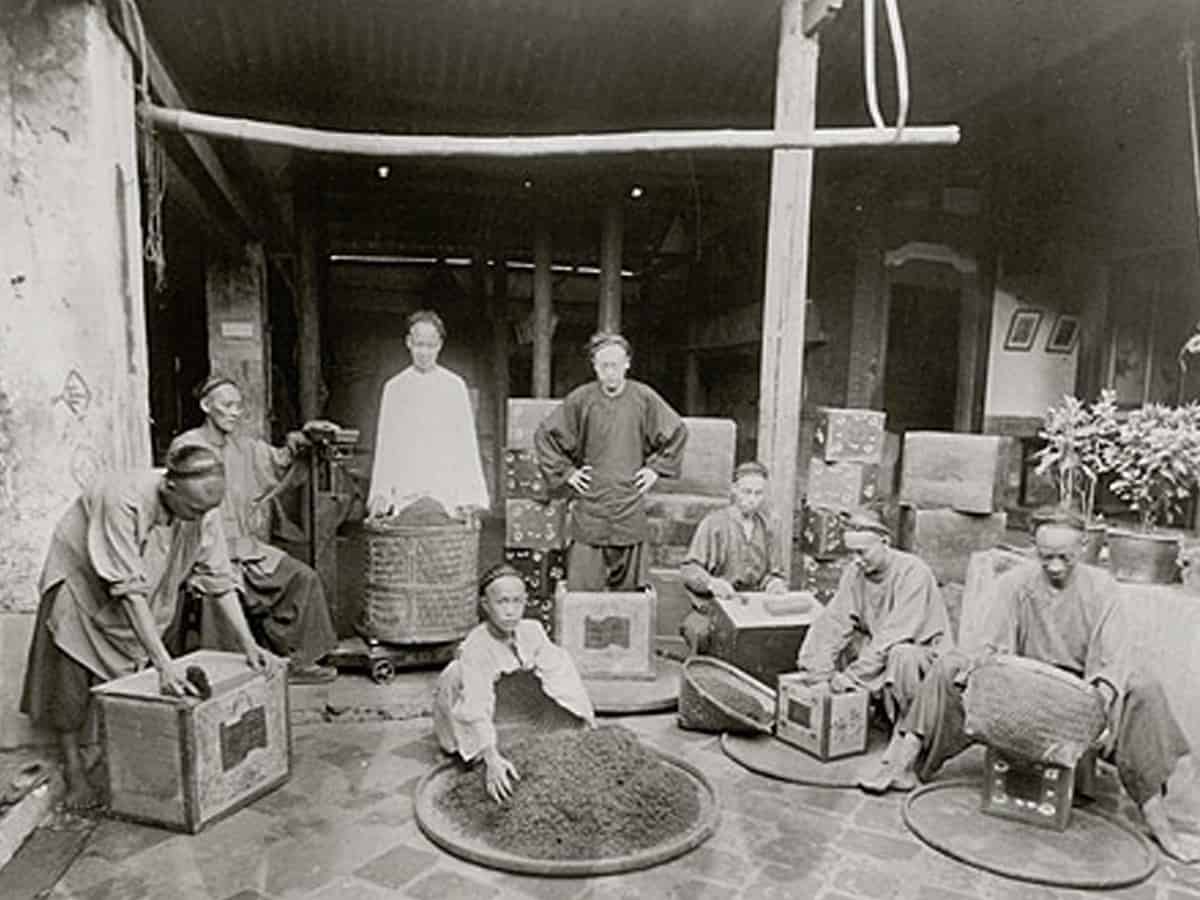
In most cities and villages of India, tea is the most accessible beverage. It is the common man’s drink and is available wherever one goes. But this was not always the case. Many years ago when China had a monopoly over the tea trade, it had to be imported from there and therefore it was very costly, especially in the European countries. In Europe, only noblemen could afford to drink tea and they kept it locked up in boxes so that others could not steal it.
Needless to say, importers and merchants who sold tea made enormous profits. This led to competition between the different traders and transporters who vied with each other to capture the market. But the tea had to be brought by ships from China to England. Sometimes the long sea voyage ruined the quality of the tea. The packages got wet in storms and the tea leaves inside became rotten. So the speed of transportation became essential.
Ships were specially made to bring Tea
In the middle of the 19th century, specially made ships (known as Tea Clippers or just Clippers) carrying cargoes of tea from China to Britain, would compete with each other to be the first to dock in London with bundles of tea.
The tea clippers were merchant ships designed for speed. Clippers were generally long and narrow ships and had many sails which carried them over the Oceans at a faster pace than most other ships. The boom years of the clipper era began in 1843 in response to a growing demand for faster delivery of tea from China.
The Great Tea Race
In 1866 a tea race was organised between five ships named the Taeping, Serica, Ariel, Fiery Cross and Taitsing to carry tea from China to London. The Great Tea Race as it came to be called in the newspapers, became the talk of the town in London. With keen interest, the public followed the daily progress of the ships as was being reported in the media. The interest in the Tea Race was whipped up to a frenzy by the media which had found an exciting event to cover. Bets were laid by the public about which ship would win the race.
Throughout the course of the 14,000-mile journey, the ships fought it out with each other. This was before the Suez Canal had been opened so the ships had to sail around Africa. When the race began, most of the time Ariel was leading. But in the last few minutes, the Taeping overtook it and finished first with a very narrow margin. It was a thrilling finish. The third ship Serica reached London more than an hour after Ariel. The Fiery Cross and Taitsing came in well behind the first three.
Owner becomes wealthy
The owner of Taeping, whose name was Captain Alexander Rodger, became a celebrated personality after the victory. He was often invited to speak about his experiences at many functions. The media too sought him out for interviews. Needless to say, his wealth increased by leaps and bounds. But unfortunately, in 1871 the ship was wrecked while on a voyage to America. The fate of the captain and his assistant Donald Mackinnon remained unknown.
Sadly all five ships were wrecked
Tragically all the ships which took part in the historic race, Taeping, Ariel, Serica, Fiery Cross and Taitsing were wrecked after a few years with heavy loss of merchandise and men.
The era of the fast Tea Clippers also ended soon after the Great Race. The opening up of the Suez Canal in 1869 and the advent of steamships laid the clipper era to rest. Sailing ships found it difficult to navigate the canal because the winds could blow from different directions. The steamships could be better controlled and they took over the lucrative tea trade. One of the last of the clipper ships named Cutty Sark, the fastest ship of those days, is still on display in a museum in the UK.

